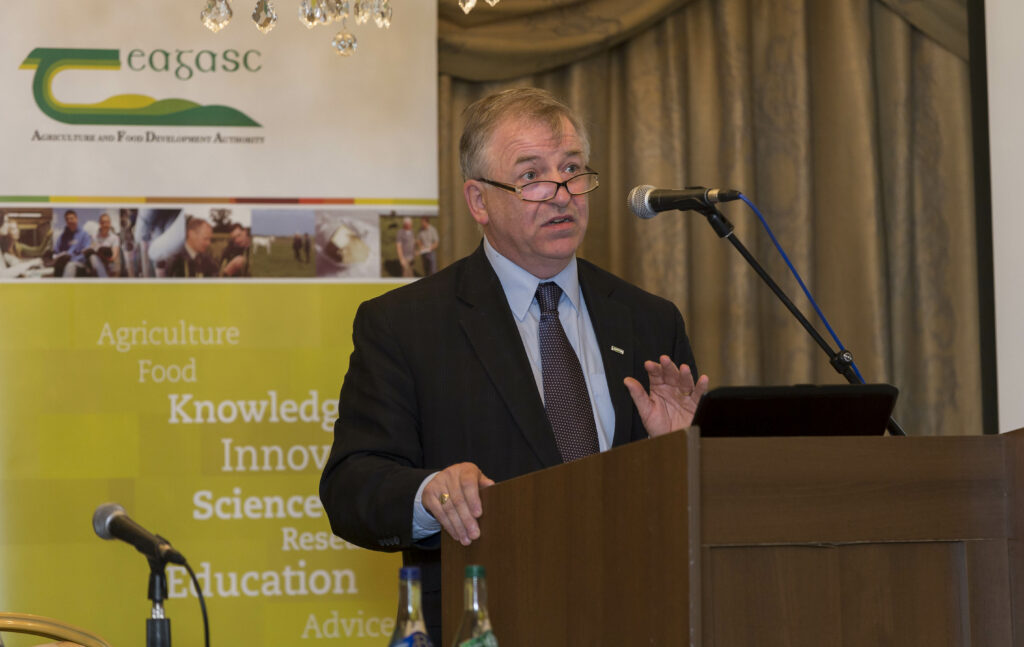Gerry Boyle – director of Teagasc – praised the tillage sector’s low contribution to emissions at this year’s tillage conference, but he cautioned that there is more to sustainability than the environment and stated that economic sustainability has to be to the forefront.
“It’s very important that we understand there are at least four dimensions to sustainability. Number one obviously, it has to be economically sustainable,” he commented.
Income has to be the number one challenge for the tillage sector.
He stated that policy decisions have had an effect on the sector.
“I remember a few years ago when we were discussing the current Common Agricultural Policy (CAP), I don’t think there was sufficient focus placed on the implications that the proposed measures of the time had for the tillage sector.
“Now we can see in the past number of years the implications not only on markets of course which are outside the farmer’s influence, but of the policies that were undertaken in regard to the income position of the tillage sector.
There’s now a much greater reliance on direct payments in tillage and the overall margin in tillage is coming in second to dairy, but substantially lacking dairy. So economic sustainability has to be number one.
Gerry stated that “the debate sometimes tends to be over-emphasised on environmental matters”.
Tillage has a very positive story to tell when it comes to the environment.
“In terms of all the metrics, such as nitrogen (N) use efficiency and the carbon footprint; tillage excels in those respects and it’s a message that should be proclaimed much more loudly.”

Pictured at the Teagasc National Tillage Conference 2020 was Ewen Mullins, head of crops research at Teagasc Oak Park. Ewen chaired the first session of the day on which covered resistance management. Image source: Dylan Vaughan
Tillage farmers willing to change
He went on to comment on the importance of tillage farmers’ willingness to adopt technology and their willingness to change.
“It’s a critical ingredient [willingness to change] of ensuring sustainability, not only environmental sustainability, but also economic sustainability.”
Boyle continued on to talk about the need for funding for research into varieties, disease resistance, protein crops and other areas which can help to make tillage farms more profitable. He said withdrawing funds for this type of research would be catastrophic for the industry.
We depend on you as cereal farmers to underpin the importance of independent research.
He thinks there are big opportunities to meet consumer demand.
Plant-based protein is becoming an increasingly valuable resource internationally, not just for animal feed, but also for human food.
“I think there are big opportunities there and I think over the next number of years we’ll be seeing far more research in this area.”

